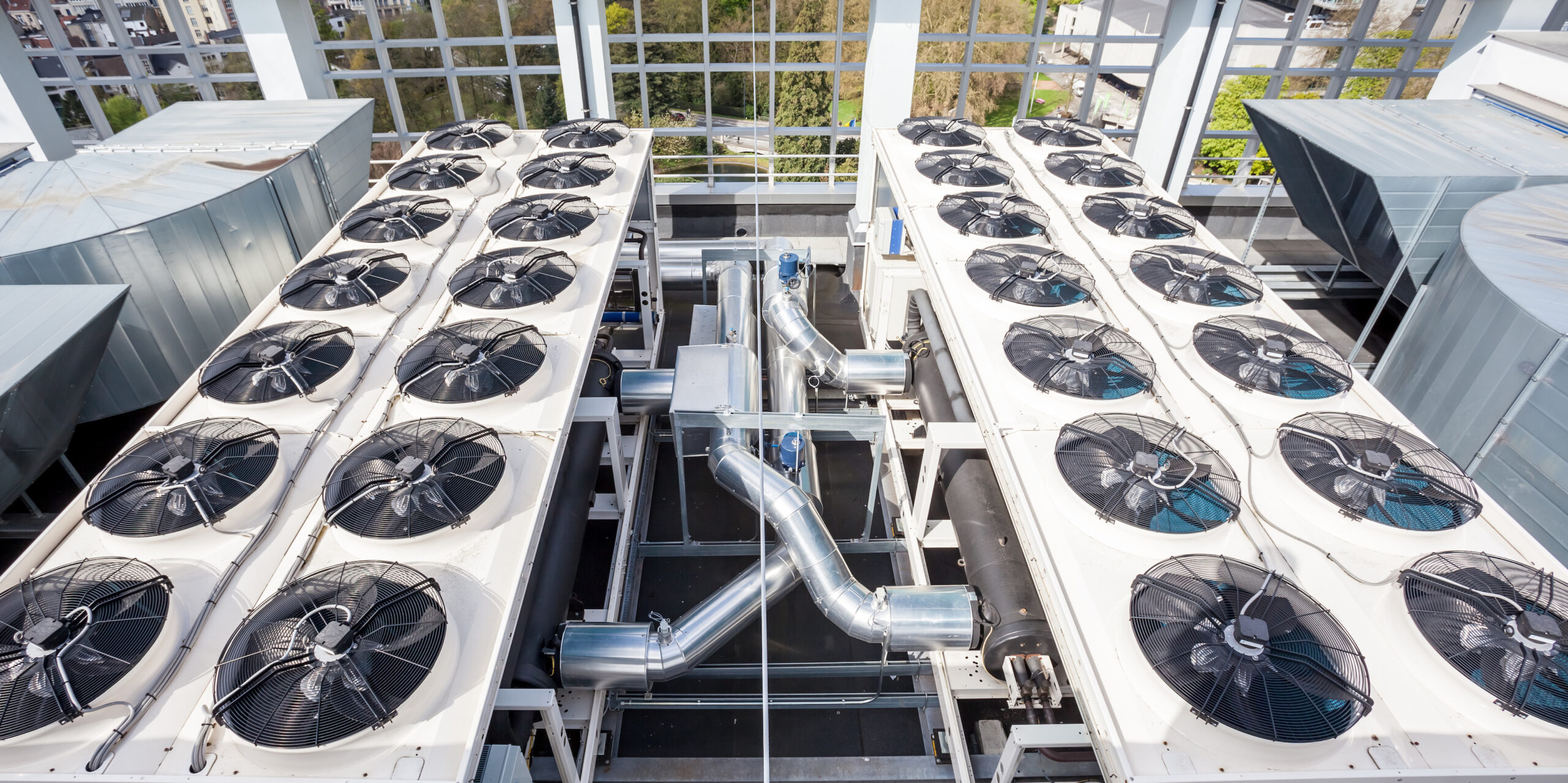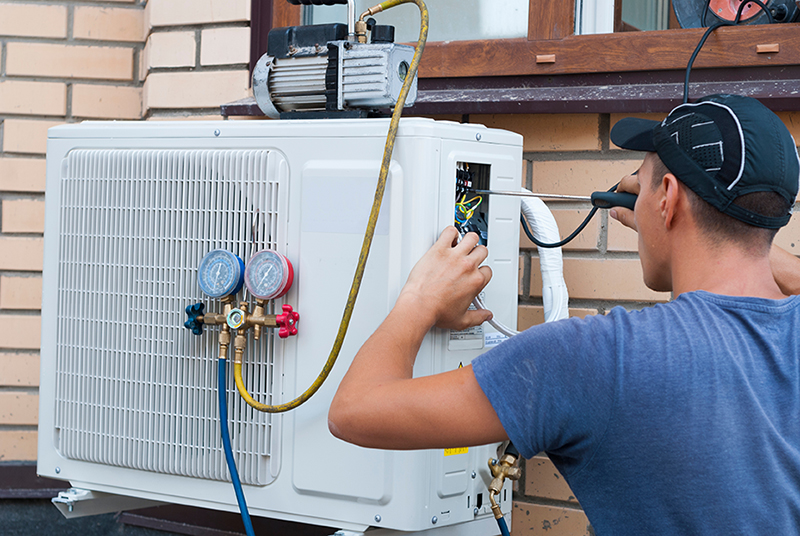Comprehensive Boiler Repair Services To Prolong Your Heating System’s Efficiency
Comprehensive Boiler Repair Services To Prolong Your Heating System’s Efficiency
Blog Article
Your Overview to Selecting the Right HVAC System for Your Needs
Choosing an ideal heating and cooling system is a crucial decision that can dramatically affect comfort and energy effectiveness in your house. Various elements need to be evaluated, consisting of the size of your house, local environment problems, and specific home heating or cooling requirements. In addition, understanding the different sorts of systems readily available and their power scores can assist assist your option. By assessing these elements very carefully, you can avoid usual mistakes. What vital considerations should you focus on to ensure your investment satisfies both long-lasting and instant demands?
Recognizing A/c System Kind
When selecting a heating and cooling system, it is necessary to recognize the numerous kinds available to meet your certain demands. The key classifications of heating and cooling systems include central air systems, ductless mini-split systems, heat pumps, and heater systems.
Central air systems are designed to cool down several areas making use of ductwork to disperse conditioned air. They are suitable for bigger homes calling for consistent temperature level control. Ductless mini-split systems, on the various other hand, give flexibility and effectiveness, as they enable for zoning capacities, allowing specific space temperature regulation without the demand for ductwork.
Heatpump run by transferring warmth rather than producing it, making them an energy-efficient choice for both cooling and heating. They are especially effective in modest environments. Conversely, heater systems use combustion to create heat, utilizing either oil, power, or gas. They are preferred in chillier areas where heating needs are significant.
Each system has distinct advantages and considerations, consisting of installation demands, upkeep, and total costs. Recognizing these types will aid property owners make educated choices based on their details requirements, climate, and budget plan restraints, ultimately guaranteeing optimum comfort and efficiency.
Assessing Power Effectiveness
Power performance is an essential consider the choice of an a/c system, as it directly affects both utility expenses and ecological sustainability. When assessing power performance, a number of metrics and ratings can help guide your decision. The Seasonal Energy Efficiency Ratio (SEER) and the Heating Seasonal Efficiency Variable (HSPF) are vital indicators for cooling systems, representing their performance over a regular cooling and heating season, respectively. Greater SEER and HSPF ratings show far better energy performance, resulting in lowered energy consumption.
In addition, seek systems that have actually gained the power STAR tag. This accreditation signifies that the devices satisfies strict power performance guidelines set by the united state Environmental Security Firm. Consider the system's variable-speed innovation, which enables more effective procedure by changing the outcome to match need, additionally boosting power financial savings.
Additionally, correct insulation and duct sealing can dramatically influence the system's overall efficiency. In recap, choosing an energy-efficient heating and cooling system not only lowers your energy expenses however additionally adds to a much more lasting environment, making it an essential consideration in your acquiring process.
Assessing System Dimension
Choosing the suitable dimension for a HVAC system is critical to ensuring ideal efficiency and performance. A small system might struggle to preserve preferred temperature levels, causing boosted wear and tear, higher power usage, and decreased comfort. Conversely, an extra-large system can result in quick biking, which not just causes ineffectiveness but likewise impacts moisture control and air top quality.
To analyze right here the ideal sizing, it is necessary to carry out a tons calculation, which takes into consideration factors such as the square footage of the area, insulation degrees, home window dimensions, and neighborhood climate problems - furnace repair. This computation aids determine try this the British Thermal Devices (BTU) required for heating & cooling. Furthermore, it is important to represent details requirements, such as the variety of occupants and the presence of heat-generating appliances

Installment Prices and Budget
An extensive understanding of setup costs is important for property owners and companies taking into consideration a new cooling and heating system. The total expenditure of installation can differ commonly based on numerous aspects, including the type of system, the intricacy of installment, and the area of the residential property. Usually, installation prices can vary from $3,000 to $10,000, depending upon the system's dimension and effectiveness.
When budgeting for a HVAC system, it is important to take into consideration not just the initial setup prices yet additionally any additional costs that may develop, such as ductwork adjustments, electric upgrades, or licenses. Additionally, it is advisable to obtain numerous quotes from licensed heating and cooling service providers to ensure competitive pricing.
Property owners need to likewise factor in the potential lasting cost savings connected with energy-efficient systems. While the upfront prices may be higher, energy-efficient models can cause considerable financial savings on energy expenses in time.

Maintenance and Long Life Factors To Consider

Proper upkeep includes regular evaluations, filter replacements, and cleaning of ducts and coils (hvac). Disregarding these tasks can bring about reduced performance, raised energy prices, and early system failing. Homeowners ought to likewise consider the schedule of solution agreements, which frequently provide scheduled upkeep and concern service, ensuring that the system remains in peak problem
Durability varies by system kind; for example, properly maintained central air systems can last 15 to twenty years, while warm pumps might have a life expectancy of 10 to 15 years. Choosing a system with a strong reputation for reliability, together with buying routine maintenance, can substantially boost the system's sturdiness. In addition, choosing higher-efficiency designs might cause long-lasting savings on energy bills, balancing the preliminary financial investment over time.
Conclusion
In conclusion, choosing a suitable HVAC system demands cautious factor to consider of numerous elements, including system types, energy performance, and size. Eventually, an educated decision will certainly improve convenience and effectiveness in domestic settings while making the most of energy financial savings.
Choosing a proper Heating and cooling system is an important decision that can significantly influence convenience and energy performance in your home.Energy performance is an essential variable in the choice of a HVAC system, as it directly affects both utility costs and environmental sustainability. The Seasonal Energy Efficiency Ratio (SEER) and the Home Heating Seasonal Efficiency Variable (HSPF) are important indications for air conditioning systems, representing their efficiency over a common air conditioning and heating season, respectively. Choosing a system with a solid online reputation for reliability, along with investing in routine upkeep, can significantly enhance the system's resilience.In final thought, choosing a suitable Cooling and heating system requires careful factor to consider of different variables, consisting of system types, energy performance, and dimension.
Report this page